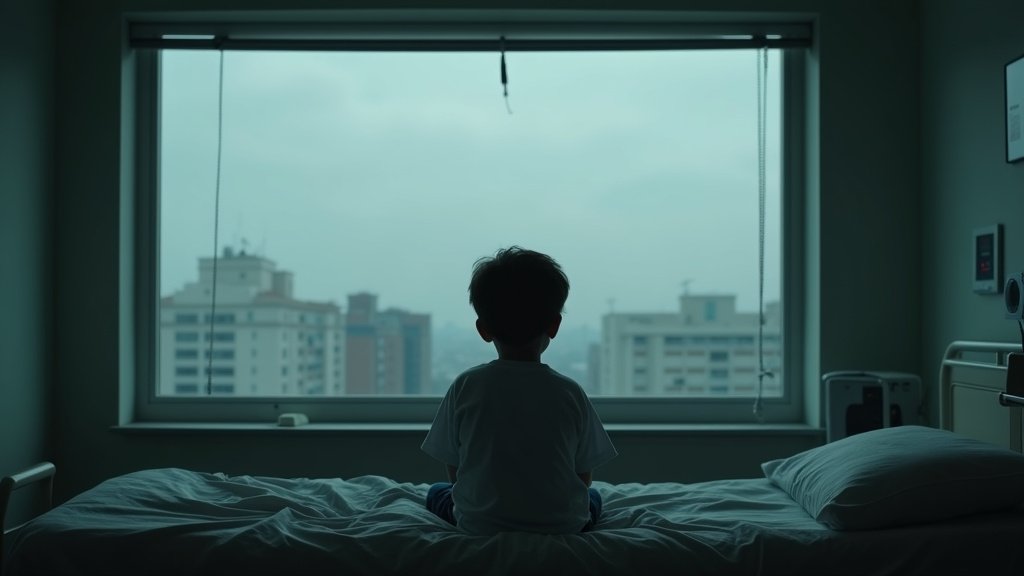In a somber development that underscores the enduring dangers of measles, a school-aged child in Los Angeles County has died from Subacute Sclerosing Panencephalitis (SSPE), a rare, fatal, and progressive brain disorder that can emerge years after a measles infection. This tragic case, announced by the Los Angeles County Department of Public Health, serves as a stark warning about the critical importance of measles vaccination and the resurging threat of preventable diseases.
The Heartbreaking Case in Los Angeles
The child, who contracted measles as an infant before they were eligible for the MMR (measles, mumps, rubella) vaccine, had initially recovered from the acute illness. However, years later, the lingering effects of the measles virus manifested as SSPE. This progressive neurological condition, which can develop between two and 10 years, and sometimes even longer, after the initial infection, ultimately proved fatal. The news from Los Angeles highlights a particularly vulnerable group: infants too young to receive their vaccination, who rely on community immunity for protection.
Understanding Subacute Sclerosing Panencephalitis (SSPE)
Subacute Sclerosing Panencephalitis (SSPE) is a chronic and devastating outcome of a measles virus infection that never fully clears. The virus lies dormant in the brain and central nervous system, slowly destroying brain tissue over time. The progression of SSPE is typically slow but relentless, leading to severe neurological decline. Early symptoms can be subtle, including personality changes, irritability, mood swings, and difficulty concentrating. As the disease advances, it can cause vision problems, memory loss, intellectual deterioration, and debilitating seizures. In its final stages, SSPE leads to muscle rigidity, difficulty swallowing, coma, and ultimately, death. While there is no cure for SSPE, treatment focuses on managing symptoms, but the prognosis remains grim, with most individuals surviving only one to three years after diagnosis.
The Measles Connection and Elevated Risk
While SSPE is exceedingly rare, affecting approximately 1 in 10,000 measles cases in the U.S., the risk escalates dramatically for those infected at a young age. Health officials report that the risk can be as high as 1 in 600 for children who contract measles as infants, precisely because they are too young to be vaccinated. The measles virus, notorious for its high contagiousness, can establish a persistent infection in the brain that eventually leads to the destructive processes of SSPE. This underscores that measles is far from a benign childhood illness; it carries the potential for lifelong, devastating consequences.
The Resurgence of Measles and Eroding Herd Immunity
The heartbreaking news from Los Angeles arrives as measles cases are on the rise in the United States and globally. The Centers for Disease Control and Prevention (CDC) has reported significant increases in measles cases, with 2025 tracking to be one of the worst years in over three decades. This resurgence is directly linked to declining vaccination rates. The MMR vaccine, which is safe and highly effective, has dramatically reduced measles incidence since its introduction. However, a national decline in vaccination coverage, falling below the critical 95% threshold required for herd immunity, means that pockets of unvaccinated individuals are becoming more susceptible to infection. This creates fertile ground for outbreaks and increases the risk for vulnerable populations, including infants like the child in Los Angeles who contracted the virus before vaccination was possible.
The Indispensable Role of Vaccination
Public health experts emphasize that widespread vaccination remains the most powerful tool against measles and its severe complications, including SSPE. The MMR vaccine not only protects the individual who receives it but also contributes to herd immunity, a vital shield for those who cannot be vaccinated, such as infants, pregnant women, and individuals with compromised immune systems. The case in Los Angeles is a poignant reminder that vaccination is a collective responsibility, safeguarding not only oneself but also the most vulnerable members of the community. Health officials continue to urge parents to ensure their children are up-to-date on their MMR vaccinations according to the recommended schedule to prevent future tragedies.
This devastating news from Los Angeles is a critical call to action. By recommitting to vaccination, communities can prevent the resurgence of measles and protect future generations from the silent, deadly legacy of SSPE.





